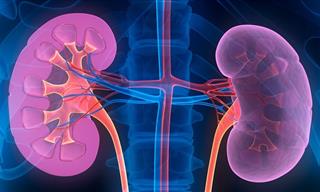A recent study at the Massachusetts General Hospital explored the idea of the effectiveness of a nasal spray that contains the so-called love hormone, oxytocin, as a weight loss booster, and the results are promising. Oxytocin is stated to have an appetite-suppressing effect on the brain, making you believe high-calorie foods are not satisfying.
Science aside, let’s just admit it, how convenient would it be to have a nasal spray that helps you lose weight? Continue reading to learn more about this new exciting study.
The Obesity Epidemic
Obesity has been on the rise for decades, with the World Health Organization estimating that it has nearly tripled since 1975, with over 2 billion adults worldwide suffering from excess weight. It is also a known fact that obesity is a serious health hazard, increasing the likelihood of developing heart disease, type 2 diabetes, stroke, and some types of cancer.
On top of that, excess weight takes a toll on one’s self-esteem and even budget, having you spend a lot of money to gain the desired results.
Recognizing all these negative impacts of obesity on a person’s health and wellbeing, a research team at Massachusetts General Hospital conducted an experiment that built on the previous finding that oxytocin, a hormone responsible for bonding behavior, can suppress the activity of the brain areas associated with appetitive behavior and food motivation, too.
How Can a Love Hormone Be Related to Our Appetite?
As previously mentioned, oxytocin is a hormone usually associated with social interactions, trust, sex, childbirth, and mother-infant bonding, which scientists usually sum up as ‘bonding behavior’. Apart from this realm of social interactions, it was also found that the hormone can suppress the brain pathways that make us feel anxious.
Most recently, scientists observed that oxytocin can alter the way we perceive food, too. Do you know the feeling of savoring and craving a specific kind of junk food? This feeling is often overactive in people suffering from obesity. So, theoretically, decreasing the intensity of such cravings should potentially curb the overeating habits that come with these cravings.
Oxytocin may be the component that can do this by inhibiting a key area in the reward system of the brain, which is directly-linked to the feelings of craving and satisfaction. The above-mentioned study explored this idea by looking at the brains of overweight people through an FMRI machine when they were shown pictures of high-calorie foods, low-calorie foods, and nonfood objects.
An FMRI measures the activity in certain brain regions in response to different stimuli. Usually, the reward areas in the brain of a person who is overweight will become hyperactive when they see a high-calorie object, which is observable on an FMRI image, but only an hour after receiving 1 treatment with oxytocin through a nasal spray, the participants’ brains reacted very differently: a part of the reward system called the ventral tegmental area (VTA) became less active when patients were shown high-calorie foods.
The decreased activity in this area weakened the connectivity between the reward system and areas responsible for food motivation, which means that oxytocin did the impossible: it tricked the brain into believing junk food isn’t satisfying. Even better, of the 10 participants, none experienced any side effects from the treatment.
And though this study isn’t enough on its own to confirm the effectiveness of the treatment, it is nice to entertain the possibility of having a quick fix for weight loss very soon. And while we wait for this miracle cure, we can always increase our oxytocin levels the good old-fashioned way, through hugs and kisses.
 Go to BabaMail
Go to BabaMail


























